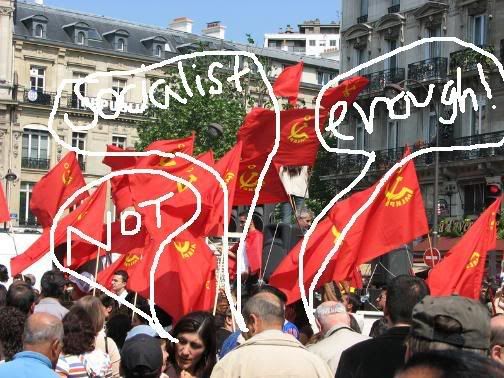There was some interest in the original book club thread of reading more political stuff and I decided I'd make this. I'm basically going to branch out from the classical Liberalism of Adam Smith (I should start with Aristotle but I don't want to take this forever by going through a bunch of governments. Instead I'll go through what's mostly relevant to modern government and then talk about Aristotle last) and try and hit on all the ideologies as they sprouted up as well, hopefully, give an understanding about where they came from.
Adam Smith and Classical Liberalism

In 1776 Scotsman and Economist Adam Smith published
The Wealth of Nations. This book is the foundation of the classic Laissez-Faire economy and in it Smith argued that the wealth of nations had nothing to do with gold or silver but had everything to do with goods and services. This was contrary to a popular notion at the time called Mercantilism which basically argued a nation's wealth was in its gold and silver. Which proved not to work out all the well for some people, Spain followed that thought process in looting the new world and they actually grew poorer. So you can see here that Smith wasn't exactly talking out of his a
ss or anything.
Smith argued that government interference with the economy actually stunts growth. He believed if you let the government have one business monopolize an industry you're banishing competition as well as lower prices and better products which leads to economic stagnation. He believed that instead you should leave the economy alone if you wanted prosperity.
Now the argument against this was "won't complete deregulation lead to chaos?" The answer Smith provided was no. He believed the market would be the one to regulate the economy because the efficient goods will sell more and the inefficient ones won't (unless you bail those inefficient ones out thus stifling the efficient ones who don't have million dollar bail outs of course.) He believed in a completely free market, an 'unseen hand' would regulate and correct the economy.
This philosophy, that societies are best with the least amount of government interference, took on the name Liberalism. It was practiced in America (and to a lesser extent still is today) because they loved the idea of "gtfo government." Now classical Liberalism is a bit confusing, because you're saying "Hey isn't that fiscal Conservatism? Or Libertarianism?" And you'd be right! But I will get into that when it comes though I'll offer an answer now. Classical liberalism in the late nineteenth century basically split into two schools: conservatism and modern liberalism and those later broke down when the prefix "neo" was invented.
Book To Read:
The Wealth of Nations by Adam Smith






 Linear Mode
Linear Mode
